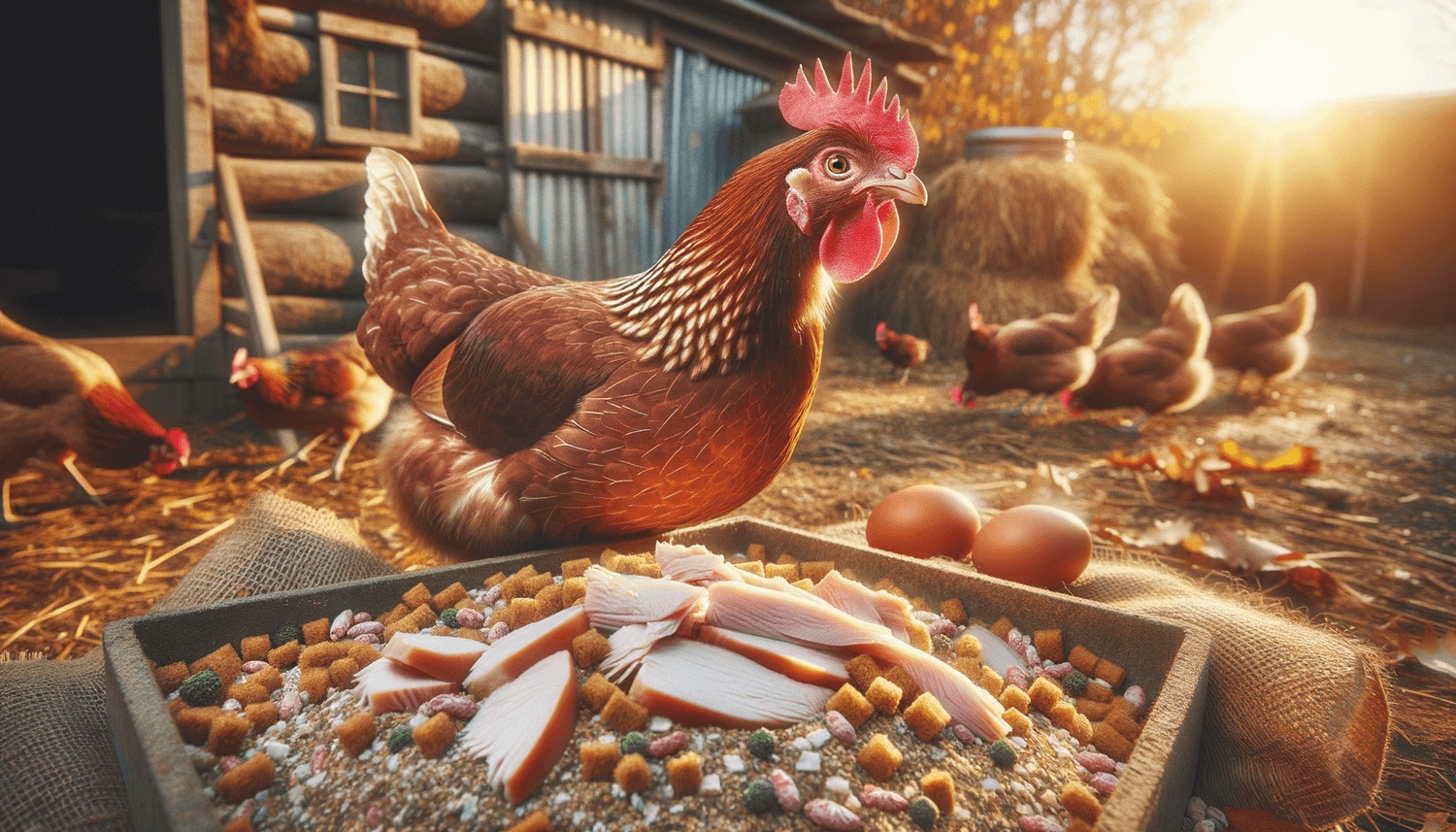Let’s talk turkey, feathered friends! Many chicken enthusiasts come across a rather curious question: can our clucking companions indulge in a feast of their gobbling cousins? As responsible chicken owners, we must know the impact of a wild Thanksgiving-style wingding on our beloved flock. In this blog post, we’ll wade through the world of bird-on-bird dining to discover if chickens can eat turkey or not, explore the importance of a balanced diet, weigh the benefits and risks, dig into the nutritional value and finally, learn how to prepare a poultry-pleasing plate for our feathered family. So buckle up fellow fowl fanciers, it’s going to be an eggs-traordinary adventure in flavor town!
Can chickens eat turkey?
Yes, chickens can safely eat turkey, as long as it is cooked and unseasoned. Poultry is an excellent source of protein, which aids in muscle development and feather production. However, be cautious not to overfeed or replace their regular diet, as chickens require a balanced diet to maintain optimal health and egg production.
A balanced diet for happy hens
Just like us humans, chickens thrive on a balanced diet to stay healthy, active, and full of life. A chicken’s diet should primarily consist of a high-quality chicken feed, which makes up around 80-90% of their daily intake. Chicken feed is carefully formulated to provide all the essential nutrients, vitamins, and minerals our feathered friends need for optimal egg production and overall health.
The remaining 10-20% of their diet can consist of treats like fruits and vegetables, which offer a fun way for chickens to munch on something new and exciting, while still getting good nutrition. So when your curious little beaks fancy a taste of turkey, it’s important to remember that moderation is key. Just as in humans, overindulgence can lead to health problems, so be sure to balance those flavorful extras with the staple chicken feed your flock depends on!
Nutritional value of turkey for chickens.
Feeding cooked and unseasoned turkey to your chickens can offer them some nutritional benefits, due to its rich profile of essential nutrients. Turkey is a good source of lean protein, which is significant for supporting muscle development, maintaining healthy feathers, and aiding in cell growth and repair in chickens.
Additionally, turkey contains vital vitamins and minerals that contribute to the well-being of your flock. For instance, it is a source of B-complex vitamins, such as niacin (B3), which assists in breaking down food into energy, and pyridoxine (B6), which plays a role in the production of healthy red blood cells. Turkey is also remarkably rich in minerals like selenium, zinc, and phosphorus. Selenium is an essential trace element that can enhance the immune system, while zinc supports healthy skin, feathers, and growth. Meanwhile, phosphorus helps to build strong bones and maintain an appropriate calcium-phosphorus balance in the body.
Despite these nutritional benefits, it is important to remember that feeding turkey should be done in moderation and not as a replacement for the mainstay commercial chicken feed. While turkey can provide some valuable nutrients, it is crucial to ensure your chickens get the full spectrum of vitamins, minerals, and dietary components necessary for their overall health and egg production.
Nutrition table of turkey for chickens.
| Information | Description |
|---|---|
| Nutritional Value | Good source of protein, vitamins (B3, B6), and essential minerals (selenium, zinc, phosphorus). |
| Suggested Serving Size | Small portions, making up no more than 10-20% of a chicken’s diet. |
| Safe Feeding Practices | Feed in moderation, making sure it does not replace high-quality chicken feed. |
| Preparation | Feed cooked and unseasoned turkey, chopped into small, manageable pieces. |
| Potential Risks | Overfeeding could lead to an imbalanced diet, unhealthy weight gain, and reduced egg production. |
| Hydration | Does not provide significant hydration; ensure chickens have access to clean water. |
| Digestion | Chickens can digest cooked turkey easily, but moderation is important to maintain gut health. |
| Seasonal Availability | Turkey can be available throughout the year, but may be more accessible during holidays. |
| Other Benefits | Feeding small amounts of turkey can provide variety and enrichment to a chicken’s diet. |
Turkey scraps – hit or miss?
While cooked and unseasoned turkey can be a delightful treat for your backyard chickens, it’s essential to be cautious when feeding them scraps from your dinner table. Avoid any turkey that has been cooked with onion, garlic, or excessive salt and spices, which can be harmful to chickens. Such ingredients can cause digestive issues and, in some cases, be toxic to your feathered friends.
Chickens and raw turkey – a BIG no!
It is crucial never to feed raw turkey to your chickens, as it poses a significant risk of introducing harmful pathogens such as Salmonella or Campylobacter, which can lead to severe illness in birds. Additionally, raw tissue may be more difficult for your flock to digest, causing discomfort and potential gut issues. Always choose to serve cooked, unseasoned turkey when offering it as a treat to your chickens.
More than just turkey
If you’re on the lookout for more delicious and nutritious treats for your chickens, don’t limit yourself to turkey. There are plenty of other options that can contribute to their health and happiness. Some fantastic alternative treats include leafy greens, vegetables like cabbage, peas, and carrots, or even fruits like strawberries, blueberries, and apples.
In conclusion, feel free to treat your chickens to a taste of turkey, but always exercise caution and moderation. Remember the importance of a balanced diet, and ensure your hens continue to enjoy a primarily chicken feed-based diet so they can stay strong, happy, and healthy.

















